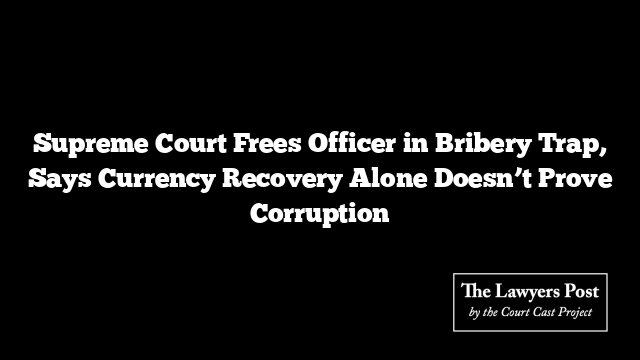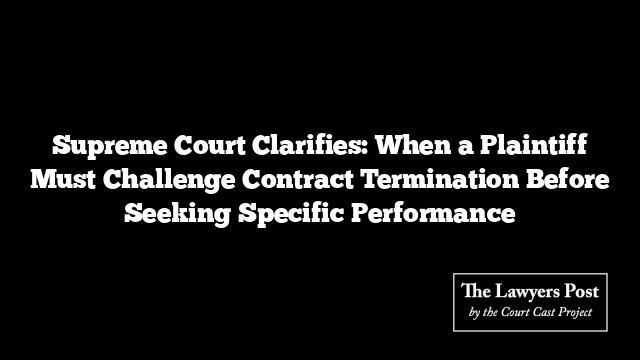In a sharp reaffirmation of due process, the Supreme Court has ruled that discovering tainted cash is not enough to convict an accused under the Prevention of Corruption Act unless there is solid proof of both demand and acceptance of the alleged bribe.
The verdict came as the Court overturned the Andhra Pradesh High Court’s decision to set aside a trial court acquittal of a former Assistant Labour Commissioner accused of taking ₹3,000 in bribe money. A Bench comprising Justices P.K. Mishra and Joymalya Bagchi found the prosecution’s story riddled with inconsistencies and lacking any credible corroboration.
According to the prosecution, the officer had sought the bribe during a site visit in September 1997. However, the Court found that the complainant’s version was unbacked by any independent witness or reliable material evidence. “Beyond his own oral claim, there is nothing to establish that any demand was ever made,” the judges observed, underlining that such uncorroborated testimony cannot form the bedrock of a conviction.
The supposed independent witness in the trap operation had, in fact, been told to remain outside the office when the alleged transaction occurred. This left a gaping hole in the prosecution’s story — even the police admitted that the mediator had no direct knowledge of any demand or acceptance.
While the marked notes were later found inside a drawer near the accused’s desk, the Court clarified that this fact alone was insufficient. The presumption under Section 20 of the Prevention of Corruption Act, it said, comes into play only after proof of both demand and voluntary acceptance — not before.
“The presumption is not automatic,” Justice Mishra wrote, warning that flipping the burden of proof without such foundational evidence would turn the statute into a weapon of injustice.
Citing the precedent in Rajesh Gupta v. State (2022), the Court reiterated that “mere recovery of currency notes is insufficient for conviction.”
Reinstating the trial court’s acquittal, the Bench held that suspicion, however strong, cannot replace proof — a reminder that even in corruption cases, the justice system must rest on evidence, not presumption.




